WITH PARTIAL LUNAR ECLIPSE
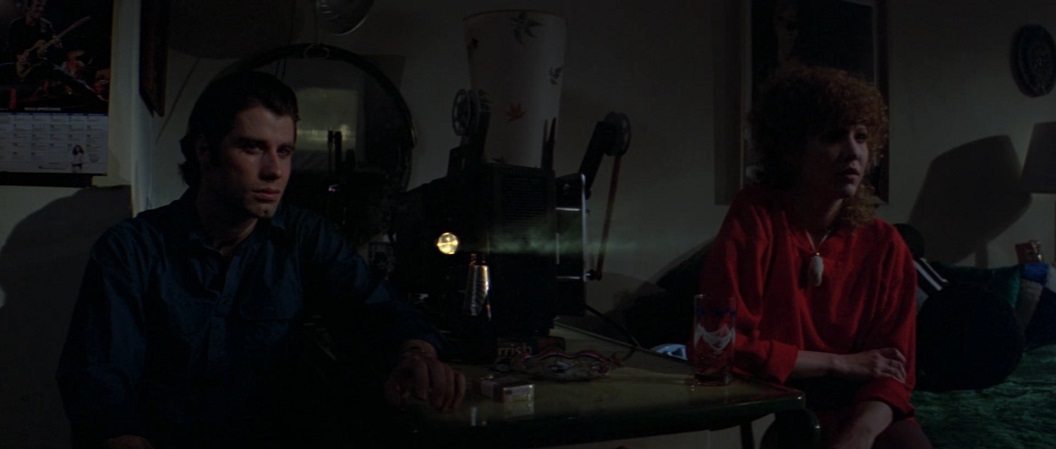
Updated: Sunday, July 5, 2020 1:20 AM CDT
Post Comment | Permalink | Share This Post
 Hello and welcome to the unofficial Brian De Palma website. Here is the latest news: |
|---|
E-mail
Geoffsongs@aol.com
-------------
Recent Headlines
a la Mod:
Listen to
Donaggio's full score
for Domino online
De Palma/Lehman
rapport at work
in Snakes
De Palma/Lehman
next novel is Terry
De Palma developing
Catch And Kill,
"a horror movie
based on real things
that have happened
in the news"
Supercut video
of De Palma's films
edited by Carl Rodrigue
Washington Post
review of Keesey book
-------------
Exclusive Passion
Interviews:
Brian De Palma
Karoline Herfurth
Leila Rozario
------------
------------
| « | July 2020 | » | ||||
| S | M | T | W | T | F | S |
| 1 | 2 | 3 | 4 | |||
| 5 | 6 | 7 | 8 | 9 | 10 | 11 |
| 12 | 13 | 14 | 15 | 16 | 17 | 18 |
| 19 | 20 | 21 | 22 | 23 | 24 | 25 |
| 26 | 27 | 28 | 29 | 30 | 31 | |
De Palma interviewed
in Paris 2002
De Palma discusses
The Black Dahlia 2006

Enthusiasms...
Alfred Hitchcock
The Master Of Suspense
Sergio Leone
and the Infield
Fly Rule
The Filmmaker Who
Came In From The Cold
Jim Emerson on
Greetings & Hi, Mom!
Scarface: Make Way
For The Bad Guy
Deborah Shelton
Official Web Site
Welcome to the
Offices of Death Records


This week on Scream Addicts, Jinx welcomes Rena Owen to the show.An actor known for her incredible performance in the 1994 Kiwi classic Once Were Warriors, as well as being one of only 6 actors in the world to have worked with both George Lucas and Stephen Spielberg during her illustrious career that spans 3 decades, Ms. Owen has chosen Brian De Palma’s 1976 Stephen King adaptation Carriefor discussion this week.
Ms. Owen and Jinx discuss their initial experiences with the film, how the film’s look at bullying still resonates, and the film’s indelible performances. Along the way, we chat about Ms. Owen’s overall opinion of the horror genre, the blessing and curse of an actor being inextricably linked to an iconic role, and…why Jinx doesn’t much care for De Palma’s direction?! [*note: Jinx states that he likes De Palma as a director, but in Carrie, he wonders if De Palma's p.o.v. runs counter to the viewpoint of a high school girl, etc. Owen says she would have to watch it again to pay attention to that perspective. For more on that perspective, see/listen to Karyn Kusama discussing Carrie on Kingcast: "I don't know, personally, the movie has such a sort of florid sensuousness that to me it's like the female in De Palma directed that movie."]
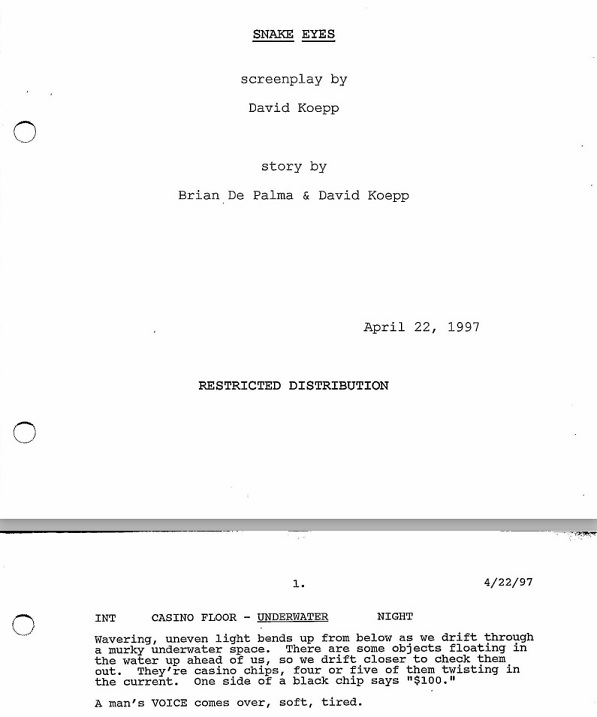
At the top of the Script Archive page, Koepp explains:
Here’s a couple dozen movies I wrote, in various stages of their evolution as scripts. Most of these managed to get produced, but were some unfairly neglected due to the insensitivity of the cinematic establishment, or were they just bad scripts? Judge for yourself. I think some of them are good, some of them are not, but I know all of them taught me something. Hope they might be helpful for you too.
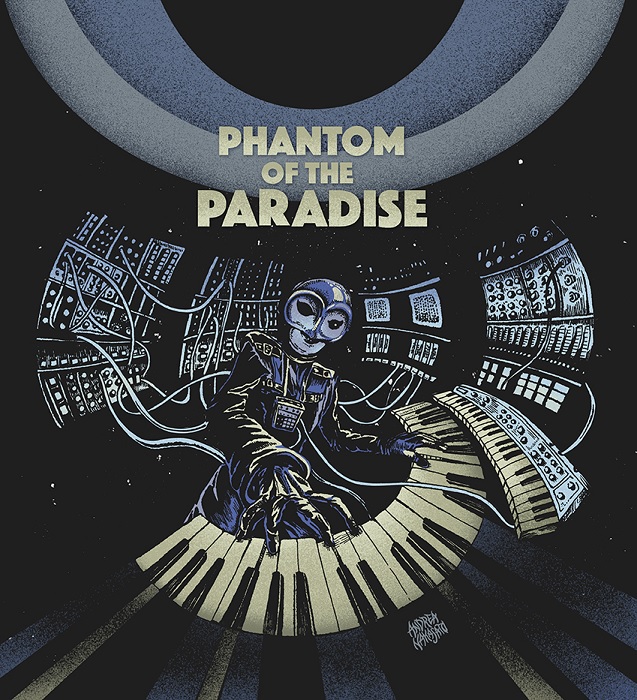
Meanwhile, in Brattleboro, Vermont, Phantom Of The Paradise will kick off an outdoor movie series at Backlot Cinema, "a safe, socially-distanced outdoor cinema." Epsilon Spires will turn its parking lot into a space where people can watch films projected onto its large outside wall. Friday night is billed as "Glam Rock a Go-Go," and the De Palma feature will be preceeded by short films by Tom Rubnitz & Rebecca Erin Moran.
"Sometimes, severe limitations can inspire truly innovative ideas," Epsilon Spires art curator Jessamyn Fiore said in a press release, according to The Commons. "Turns out the answer was right in front of us — or rather in back of us!” she said — “a big parking lot with a large wall that can support a sizable film screen — the essentials for an open-air cinema."
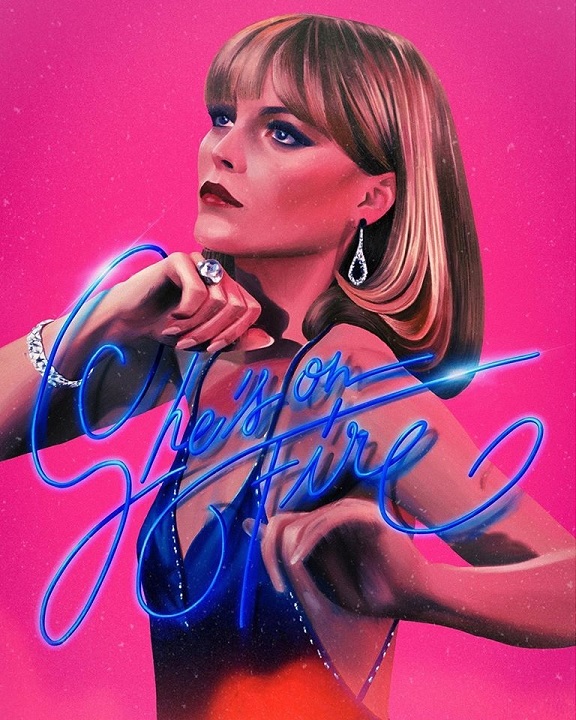
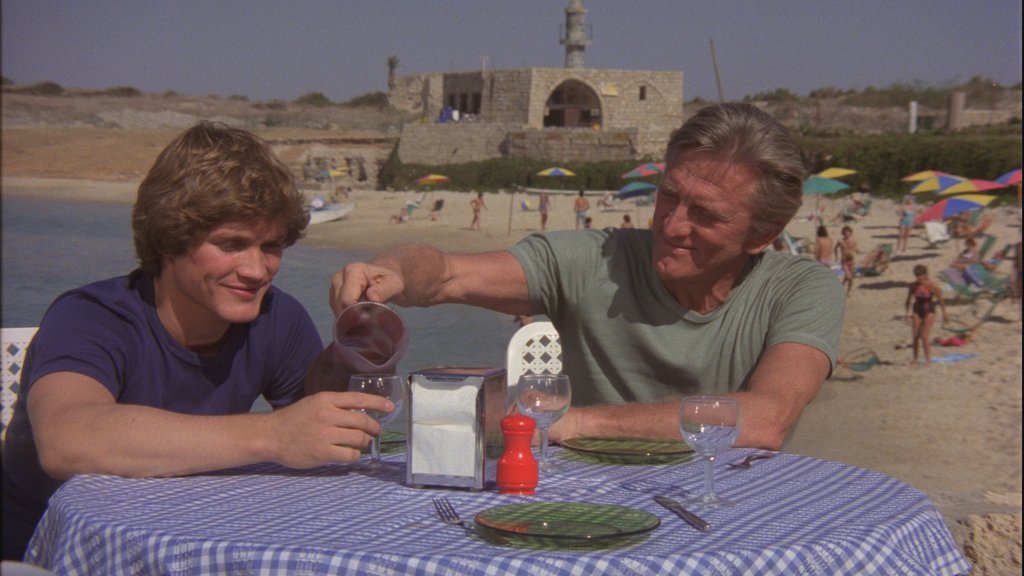
As soon as I got back to the states, I had auditioned years before for these guys I'd never heard of named George Lucas and Brian De Palma. And they were casting together two little movies... this weird Star Wars movie that I thought made no sense, and a movie called Carrie, which was actually appropriate for me and my age at the time. But De Palma elected to go with William Katt and Sissy Spacek, who were a half a generation older than me. But he had remembered me, and I got an audition for this movie called The Fury. And he actually booked me for the role. The problem was, I was under contract to Universal Studios, and I had to get permission to be loaned out from Universal to 20th Century Fox. And the studio just paid me my rudimentary, probably $500 a week, and negotiated a big salary for me on The Fury, and took all the money. But what complicated matters was that I was shooting an NBC Universal series at the time called The Oregon Trail, and we were in Flagstaff, Arizona. So the studios worked together, Universal and Fox, to work out a schedule, and I bounced back and forth continually from Flagstaff, Arizona to Los Angeles, Chicago, and ultimately Israel, where we shot The Fury.Kirk Douglas couldn't have been nicer. He was warm, he was embracing, he was paternal, he had no attitude whatsoever. And when I really saw the grandeur of his iconic celebrity was when we got to Israel, and he was the biggest star in the world in Israel. [Andrews mimics an Israeli accent] "Kirk Douglas! Kirk Douglas!" Because Kirk Douglas was Jewish, and he was revered and loved by all Israelis. And he was like... imagine traveling with The Beatles, and still, he was... he was gregarious, he was not reclusive, he was inclusive. And when we shot a whole sequence in Caesarea-- we originally based in Tel Aviv, and then went to Caesarea where we shot the terrorist sequence where I think my dad's been killed, and John Cassavetes whisks me away-- and Kirk and I had sort of a swimming competition [starts laughing] I remember that when we got in the ocean and we were racing in to shore, actually, I was beating Kirk Douglas, and De Palma said, "Slow down, slow down." He said, "You can't win, and at the most, you have to tie."
So, but it was a great scene, sitting around this table there. De Palma set a dolly track that was 180 degree semi-circle, and we shot the scene in one take. We did several takes of this particular one-take, but there were no cuts in that scene where we're eating and talking, and then Cassavetes comes over, I think I go to the men's room or whatever, and then all hell breaks loose.
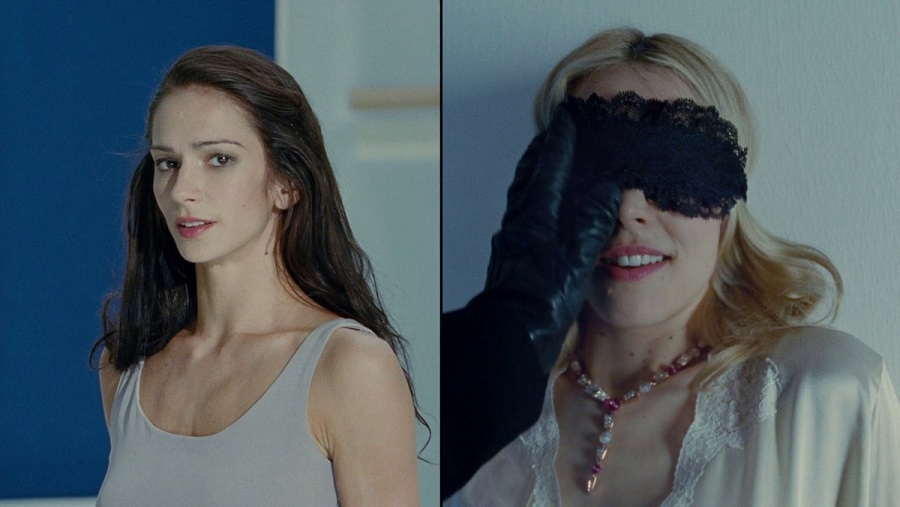
Then, today, I came across a quote from an interview with De Palma in the New York Times, published upon the release of Passion. For the article, Nicolas Rapold had wanted to sit with De Palma while the two viewed clips from older films that inspired parts of Passion, but De Palma playfully suggested they watch clips from his own films instead, saying, "I could only refer to my own films. Nobody does this but me."
As they watch the split screen sequence from De Palma's Sisters, De Palma tells Rapold, "The thing about split screen is: It’s a kind of meditative form. You can go very slowly with it, because there’s a lot to look at. People are making juxtapositions in their mind. And you can have all this exposition mumbo jumbo on one side."
The part of the quote that stuck with me was that split screen is "kind of a meditative form." It strikes me that De Palma's use of split screen has gotten more and more meditative in his later films: from the juxtapositions of fictions and truth in the complex split screen machinations of Snake Eyes, to the where-are-we-now and who's-watching-who blender of surveillance, thievery, and art in the split screen sequence from Femme Fatale. And then there is the split screen in Passion, which is so oddly beautiful and eerie at the same time. Rapold and De Palma watch that sequence for the article, as well:
Some filmmakers claim not to watch their own films, or say they only see the mistakes. Mr. De Palma displayed no such qualms as he pored over the split-screen sequence in “Passion.”On the right-hand side, Ms. McAdams as Christine goes about her business after a party at home, showering undisturbed.
“I told her, ‘Just get yourself ready,’ and she could make that as long or as short as she wanted,” Mr. De Palma said. “I would just cut it.”
On the left, as the ballet unfolds, the image cuts from a tight close-up on Ms. Rapace’s eyes to the duet in progress. The piece is Jerome Robbins’s version of “Afternoon of a Faun,” in which a couple dance as if facing the mirrored wall of a studio. In Mr. De Palma’s hands, that means they’re looking dead into the camera.
Meanwhile, somebody’s now in Christine’s house.
“You’re lulling the audience,” Mr. De Palma said of the combination of sequences. “I had no idea how it would work. I just had an instinct about it. This is your very typical point-of-view murderer shot, but here juxtaposed against this beautiful ballet.”
The dance grows more intimate. Christine’s stalker comes closer. Art on the left, death on the right.
“And then whack!” he exclaimed.
It was a resounding end to the scene, but just another step in Mr. De Palma’s nightmarish world of suspense.
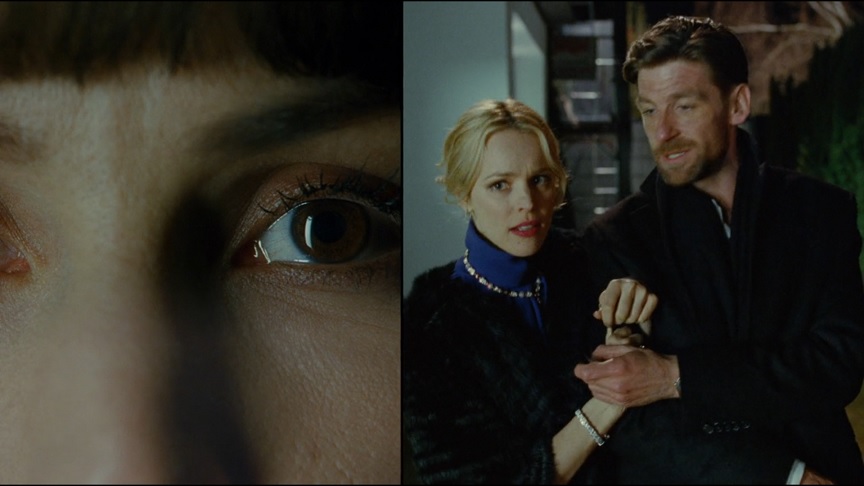
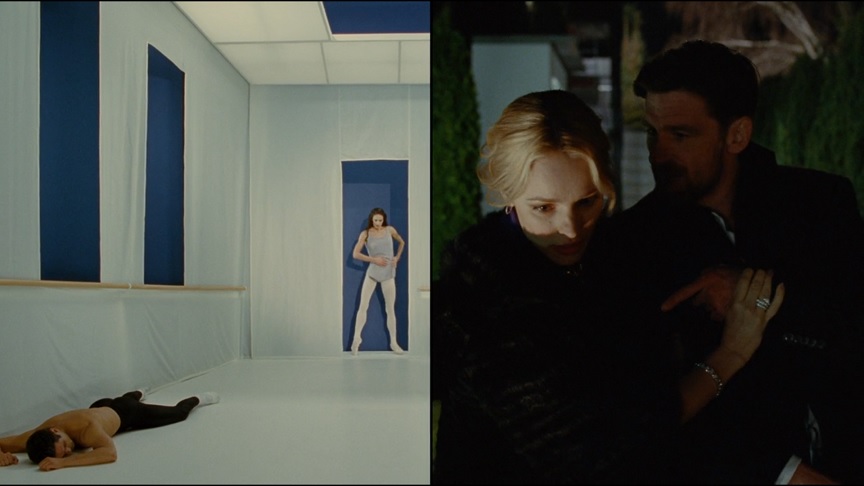

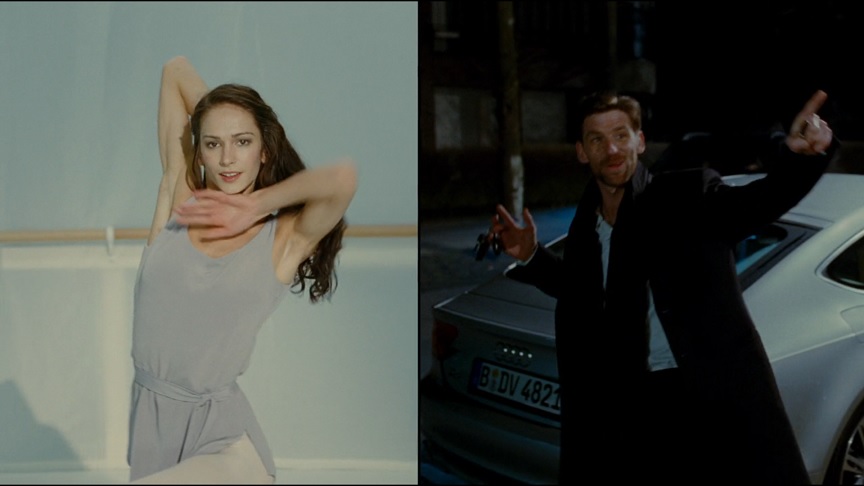
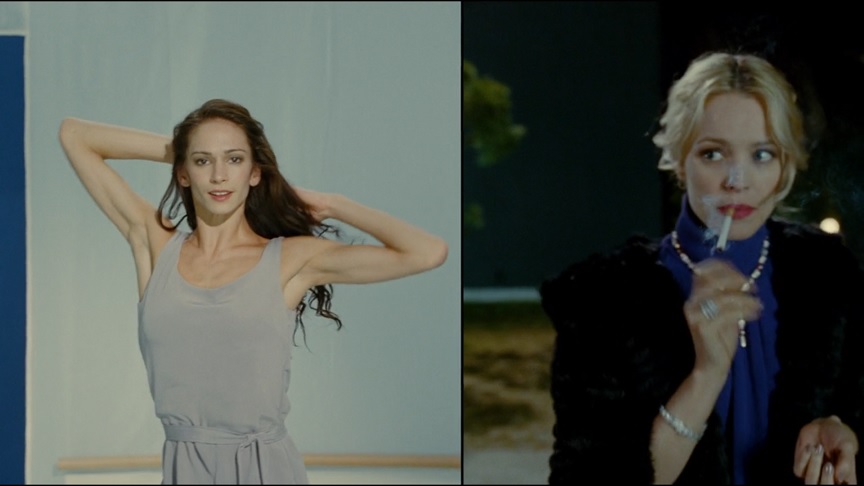
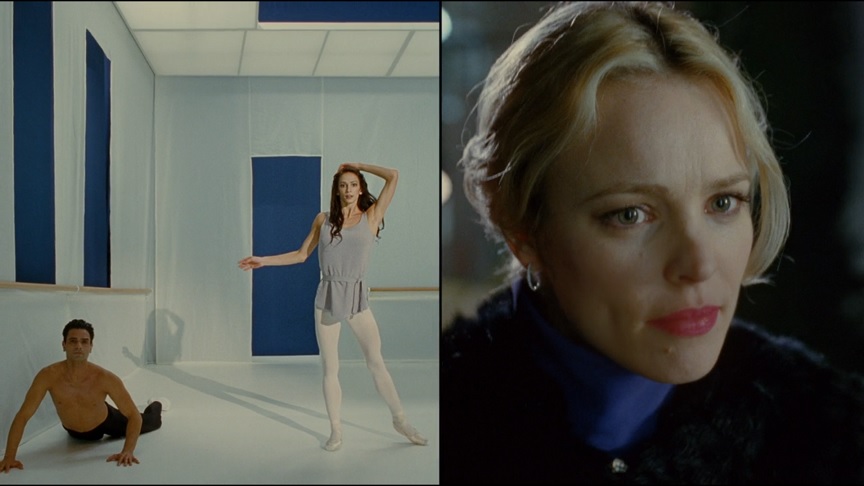
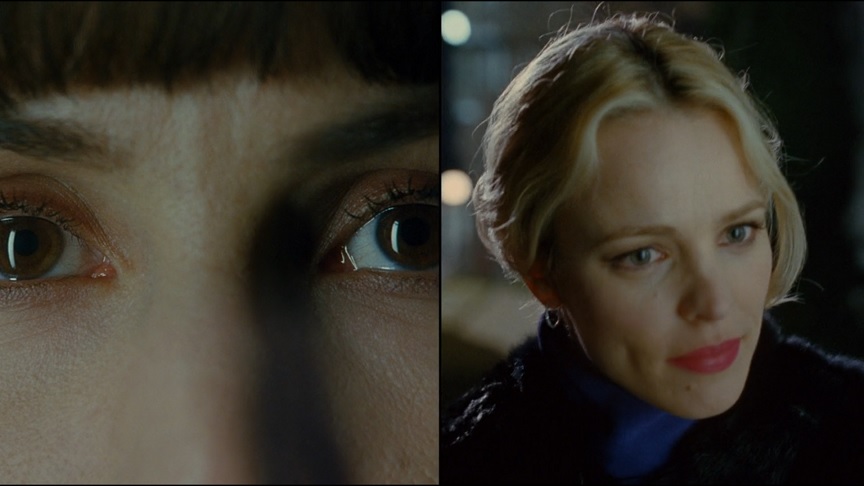
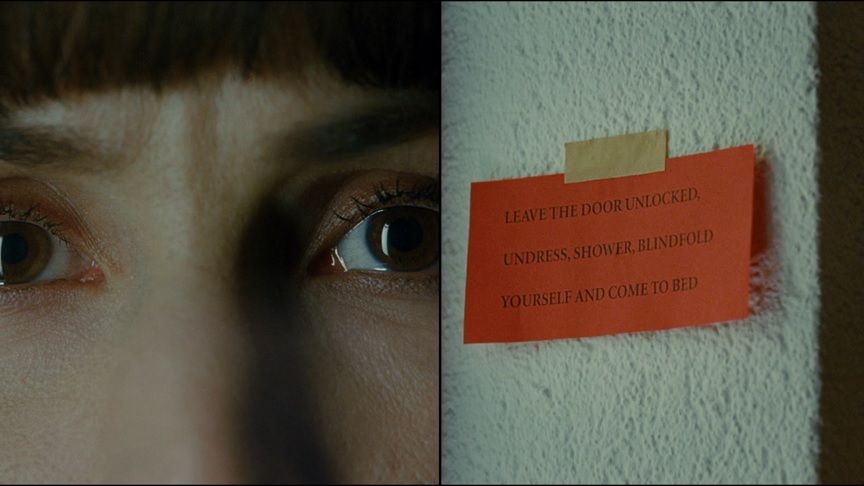
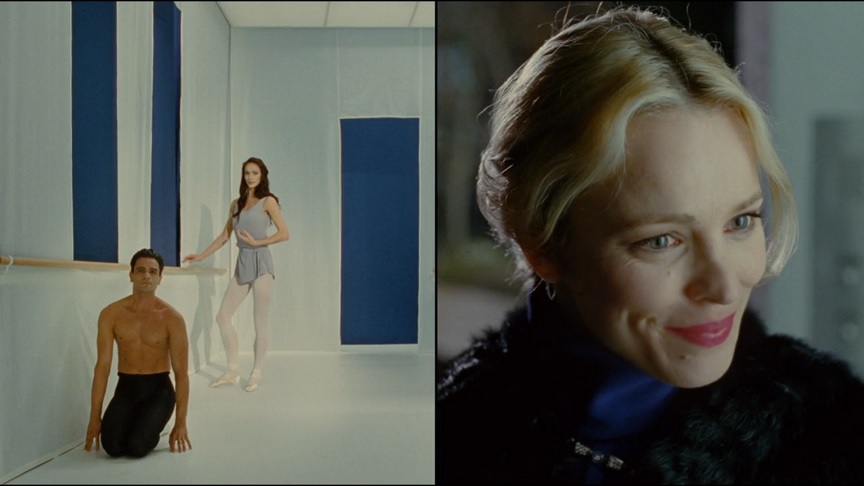
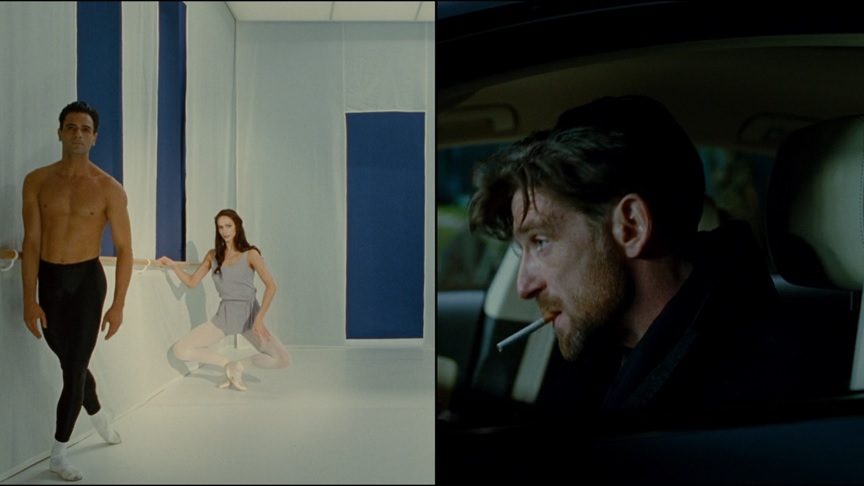
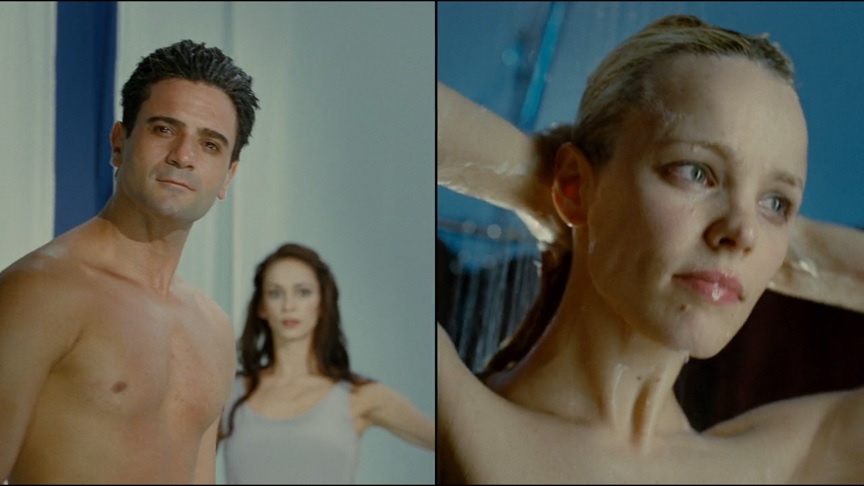
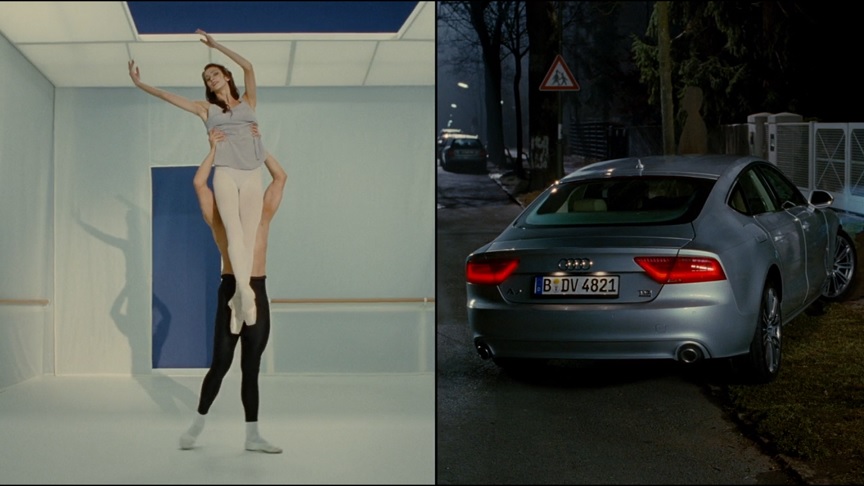
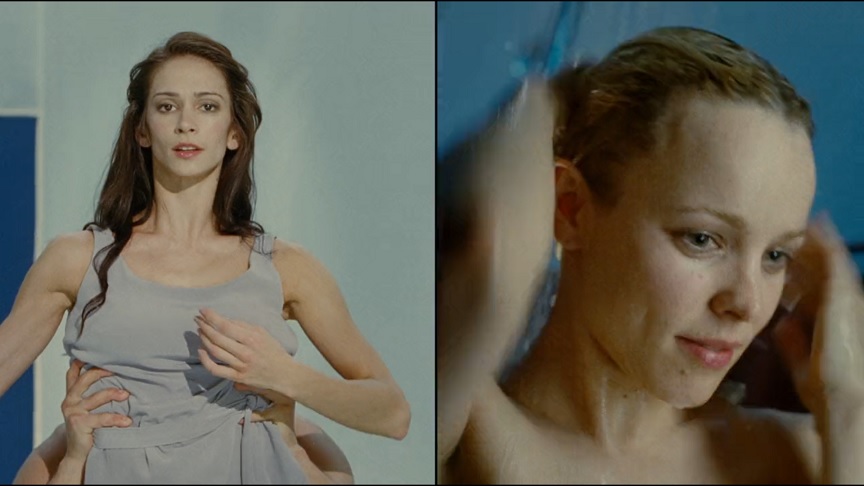
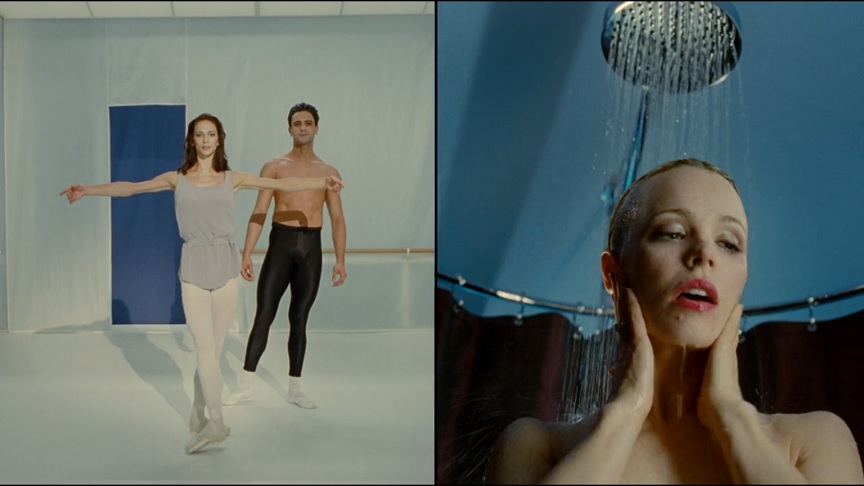
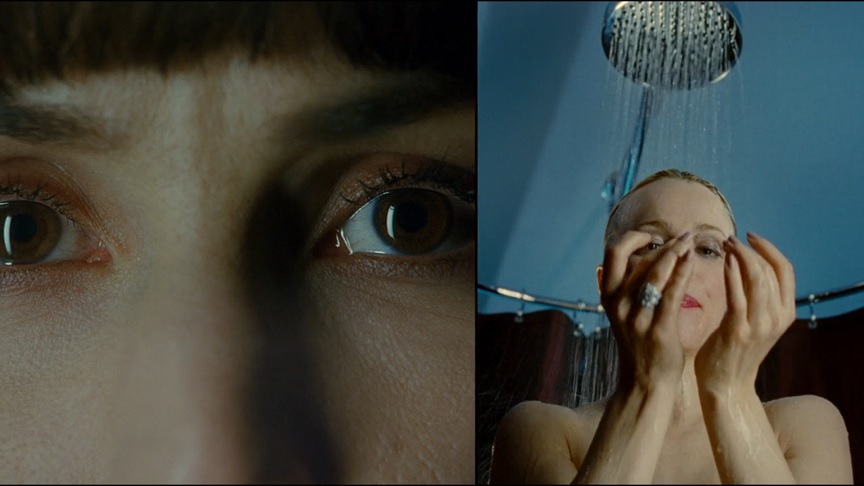
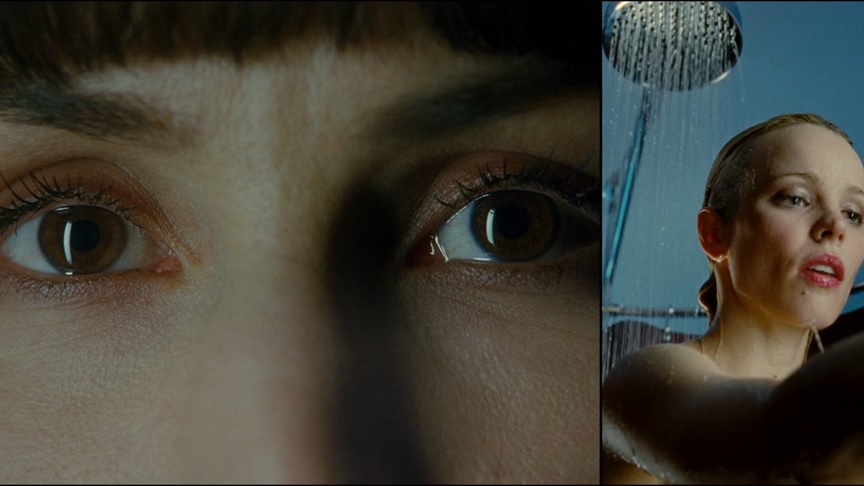
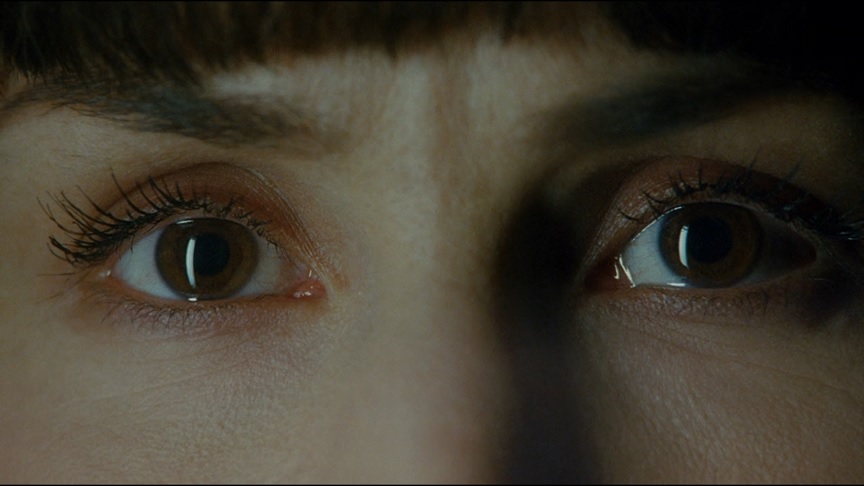

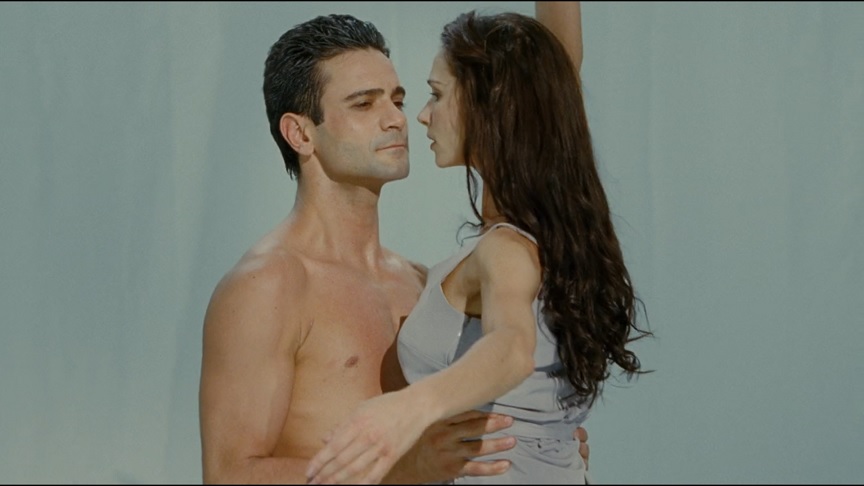

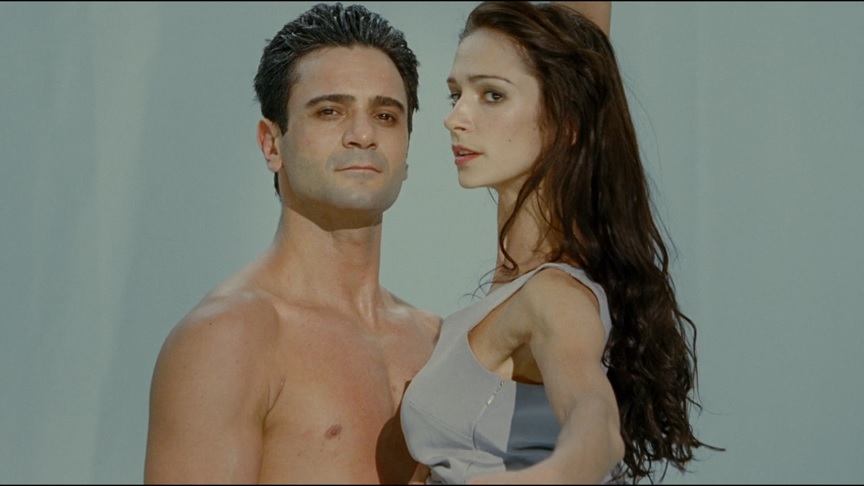



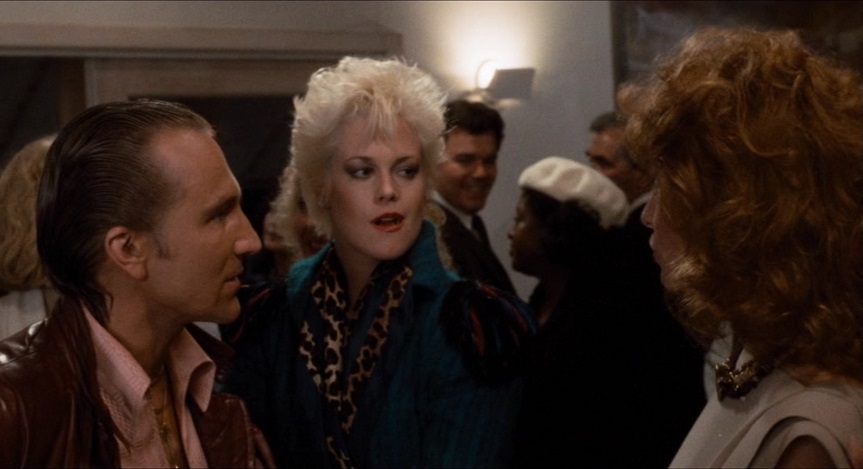
"There’s an alternate reality out there in which we’re all at the multiplex, or at least able to go, and watching all of the big blockbusters that were originally scheduled to come out in the summer of 2020," Wonder Woman 1984, we can still go back to 1984 and watch all the movies that would have been playing in theaters while Wonder Woman was fighting supervillains."
Bibbiani's alphabetical list also includes Joe Dante's Gremlins, Neil Jordan's The Company of Wolves, Tim Burton's short film, Frankenweenie, Wes Craven's A Nightmare On Elm Street, and several others. Here's what Bibbiani says about Body Double:
Brian De Palma’s lurid pastiche of Hitchcock’s Rear Window, Vertigo and Dial M for Murder stars Craig Wasson (A Nightmare on Elm Street 3: Dream Warriors) as a sad-sack struggling actor who takes a housesitting gig and falls in love with a beautiful neighbor through a telescope, watching her as she seductively dances at night. His late night voyeurism makes him the only witness to her brutal murder, but the plot takes a bizarre turn when he notices that a famous porn star named Holly Body, played by a never-better Melanie Griffith, has the exact same sensual dance routine in her films.The creepy psychosexual subtext of Hitchcock’s films is laid bare, front and center, in De Palma’s Body Double, a film which showcases some of the most ambitious and playful camerawork of the director’s career. Even when it’s not shockingly violent Body Double still feels shocking, as Wasson’s hapless protagonist discovers the depths of his own obsessions and the bizarre lengths he will go to in order to seduce the woman (women?) of his dreams. Meanwhile, Melanie Griffith challenges all expectations in her performance, revealing Holly Body to be as complete, as radical, and as intriguing a character as any in De Palma’s filmography.
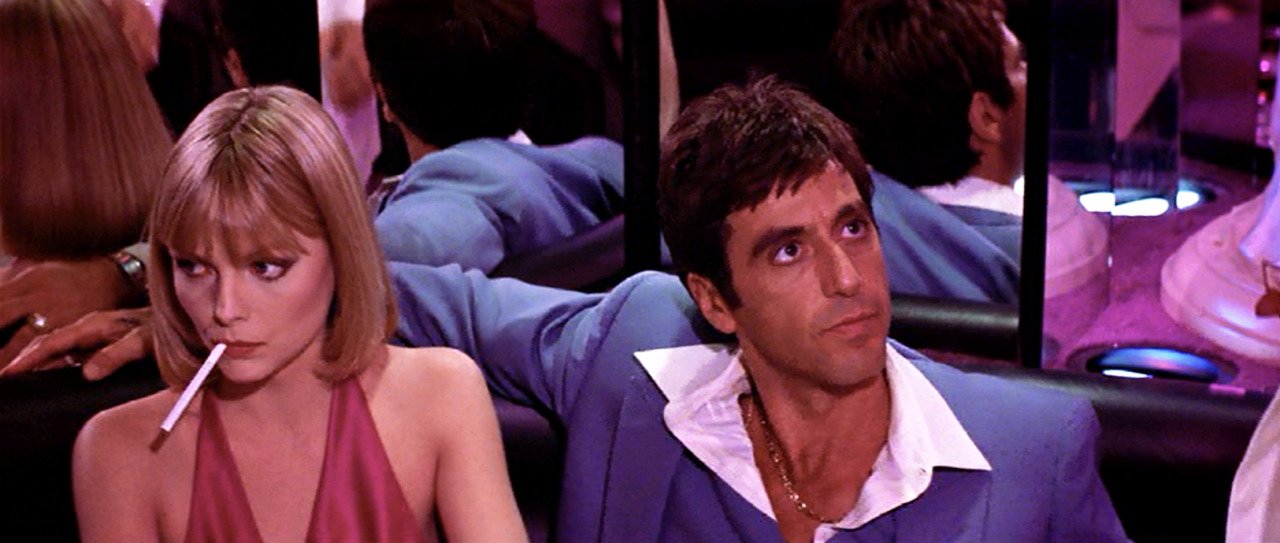
First of all a disclaimer: despite being a teenager for much of the 1980s, I didn’t see my favourite film of the 1980s in the 1980s. Instead, I needed Quentin Tarantino to tip me the wink in the wake of the release of Reservoir Dogs in 1992, when he deliriously sang the praises of the film’s director and his gangster epic. “When Brian De Palma would come out with a new movie, the whole first two weeks before the movie opened, I would count down the days,” said QT. “That week before Scarface opened, that was Scarface Week.”My own Scarface week came soon after, when I eventually tracked down a secondhand VHS tape of the movie and I could finally say hello to my little Cuban friend. And I must have watched it nearly half a dozen times (I took Sunday off). Al Pacino’s hammy performance as Tony Montana – “You fuck with me, you fuckin’ with the best” – is a glorious over-the-top riot of violence, Hawaiian shirts, Giorgio Moroder synth sounds and piles and piles and piles of cocaine. Oliver Stone, who wrote the script that included 207 uses of the word “fuck”, admitted he had been a coke addict for two years before sitting down to write the story (“Scarface was me taking my revenge on that drug,” Stone said) of a Marielito who arrives in Miami from the gutters of Havana with the intention of going “right to the top”.
In its depiction of 1980s pop culture, inelegantly wasted lives and hardcore excess, it is untouchable (if De Palma fans can pardon the pun). Plus, it had one of the best movie posters ever. If I could order you to watch this film, I would… but as Tony Montana would say: “The only thing in this world that gives orders is balls.” Preach.
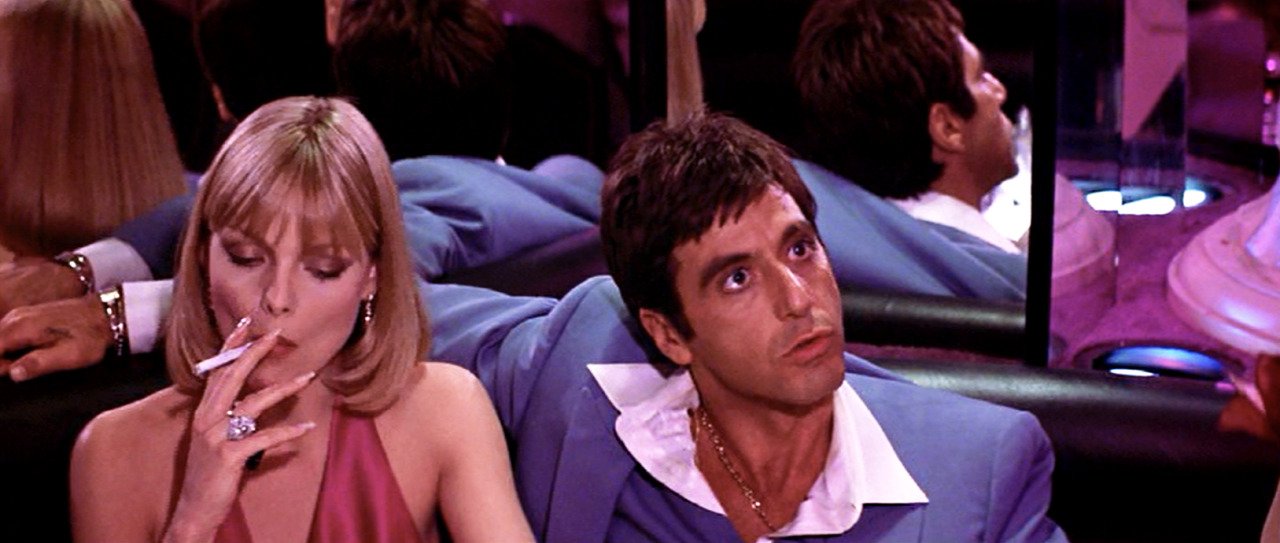
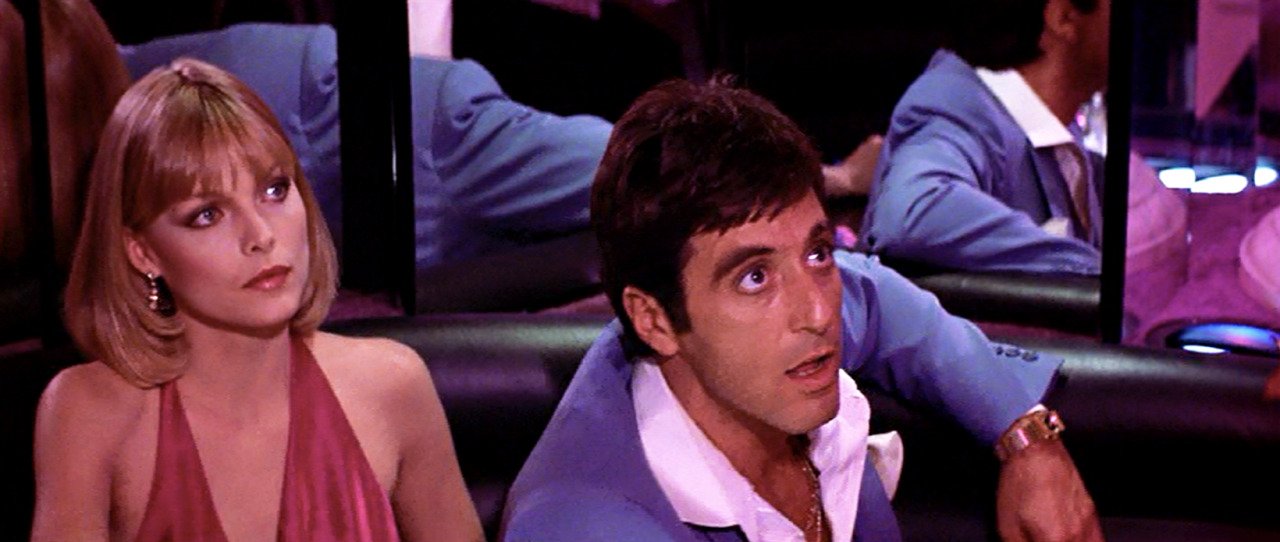
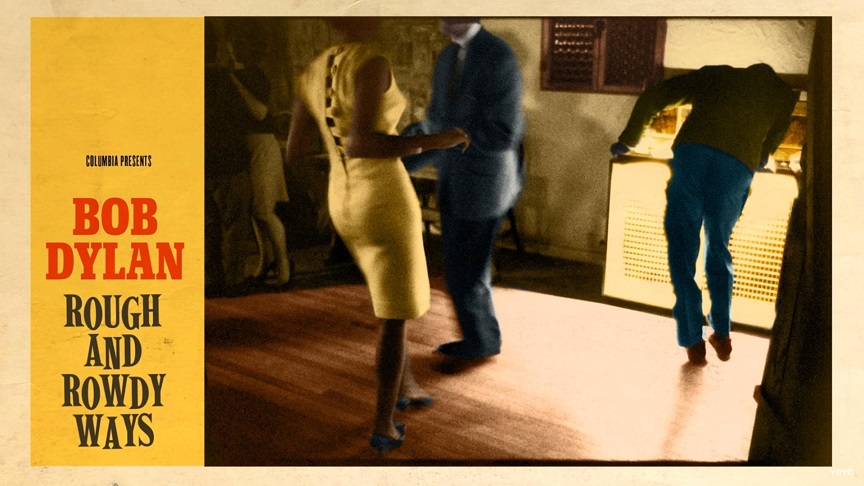
Well, it must be the winter of my discontent
I wish you'd've taken me with you wherever you went
They talk all night and they talk all day
Not for a minute do I believe anything they say
I'm gon' bring someone to life, someone I've never seen
You know what I mean, you know exactly what I meanI'll take the Scarface Pacino and The Godfather Brando
Mix it up in a tank and get a robot commando
If I do it upright and put the head on straight
I'll be saved by the creature that I createI'll get blood from a cactus, gunpowder from ice
I don't gamble with cards and I don't shoot no dice
If you look at my face with your sightless eyes
Can you cross your heart and hope to die?
I'll bring someone to life, someone for real
Someone who feels the way that I feel